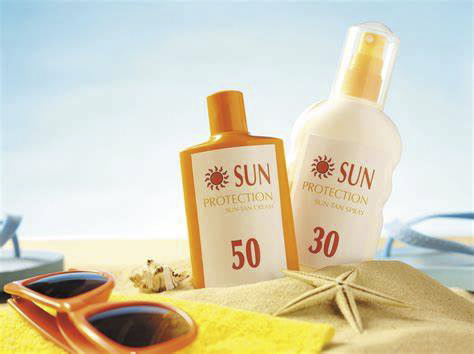
Every year around 2-3 million people are diagnosed with skin cancer that may or may not be a malignant growth that would possibly shorten a lifespan or cause further issues. When a growth is malignant it means that the growth is infectious and most likely cancerous. Although malignant patches happen it is also possible to contract a benign growth. To prevent yourself from gaining or leading your skin to cancers it is important to use SPF and to be aware of how damaging radiation can be from UV.
There are three types of UV radiations that the sun produces, these consist of ultraviolet A, ultraviolet B, and ultraviolet C. Although there are some health benefits that UV provides such as vitamin D it also provides some harmful effects such as burns, skin aging, and cancers that develop later in life. UVA and UVB radiation are what you need to be aware of regularly. UVA and UVB exposes the skin to tanning, sunburns, skin wrinkling, blistering, sunspots, all of which hold possibilities to lead to cancer. Having a lot of exposure and little to no precautions to these UV rays can cause people to have later in life issues because of the damage that has been inflicted on the outermost/top layers of skin. UVC is pretty much irrelevant to people due to being absorbed by the earth’s atmosphere. UV radiation is actually a heightened level of energy due to its ionizing radiation. Since UV rays hold so much energy, they have the ability to damage skin cells, DNA, and they can alter genetic material.
Just like there are 3 forms of UV radiation there are also 3 main forms of skin cancer. These 3 cancers are known as Basal Cell Carcinoma, Squamous Cell Carcinoma, and Melanoma. The most common form of skin cancer containing around 70-80% of diagnosed skin cancers is Basal Cell Carcinoma (BCC). Basal Cell Carcinoma develops on the skin that has been exposed to skin such as the neck, face, and head. Symptoms of this form of cancer are usually…
-Black, Brown, Blue Lesion
-Shiny bump that matches your skin color
-Scaly patch (Usually flat)
-White wax like lesion (Scar-like)
If you are able to catch this and have it checked out, then it is possible to treat and remove these infected areas.
Another form of skin cancer is Squamous Cell Carcinoma (SCC). Squamous Cell Carcinoma is around 15% of diagnosed skin cancers. Squamous Cell Carcinoma begins as the growth of compiled cells on the skin that start as squamous cells. Squamous cells comprise the outer and middle layers of skin. Like BCC, SCC also occurs on sun exposed areas that have a history with UV rays and even tanning beds. If you do not treat squamous cells, then they begin to spread and cause further complications to other parts of the body. Symptoms of Squamous Cell Carcinoma are…
-Flat sores with a scale like crust
-Rough scaly patches that can become open and exposed sores
-Sore spots in the mouth that are patchy
-raised patches/sores on or around genitalia
-firm bumps called nodules (may be red, skin colored, pink, brown, black)
If there is an area of concern, then it is important for you to get checked by a doctor in case of the patch being malignant and cancerous.
The final skin cancer and the most uncommon is Melanoma. Melanoma is about 1% of skin cancers. Melanoma starts as melanocytes; melanocytes make up the pigment that colors a person’s skin, the pigment is also known as melanin. Melanoma surfaces and grows on places that have been exposed to the sun but also has the possibility to grow in the eyes as well as inside the body, but this is highly unlikely compared to exposed skin. Melanoma can grow on healthy skin, but it is grown through areas of moles more typically. Symptoms of this cancer are…
-Unusually pigmented skin that has grown
-moles (unusual, differently colored, asymmetrical, etc.)
If you find a patch of skin that has any of these symptoms or that worries you then you should be checked immediately. Melanoma although the most uncommon, it is the deadliest. Melanoma holds the majority of skin cancer related deaths and is very unforgiving.
Even though all of the prior information given may seem a bit nerve racking and scary there are ways to prevent yourself from contracting skin cancer and growths. Making preventative measures can help keep you healthy and safe from these cancers. Additionally doing things like wearing a SPF moisturizer daily or wearing sunscreen when you come in contact with the sun can help keep the skin healthy as well as younger looking. When you disregard your care for the outermost layers of skin, then you risk causing complications especially if you are consistently in the sun, fair skinned, or you have lightly colored eyes.
SPF is a great preventative measure; SPF stands for Sun protection Factor. Different SPF have different properties. The higher the SPF basically highlights the protection it has against ultraviolet rays. (Mainly UVB) When an SPF has a higher number, it has more strength and causes a less splotchy coverage. Even though the Sun Protection Factor may be higher it does not mean that it lasts any longer than a smaller SPF. You should reapply sunscreen at least every 1-2 hours dependent upon the amount of sunlight you allow yourself to be in. Wearing higher coverage clothing, avoiding tanning beds and keep yourself hydrated can be preventative as well.
Don’t forget your sunscreen when you soak up the sun this coming year.





JBrewer • Feb 8, 2024 at 11:19 am
Good Job!
JBrewer • Feb 8, 2024 at 11:18 am
This is the greatest article I have ever read! Good amount of information and writing!